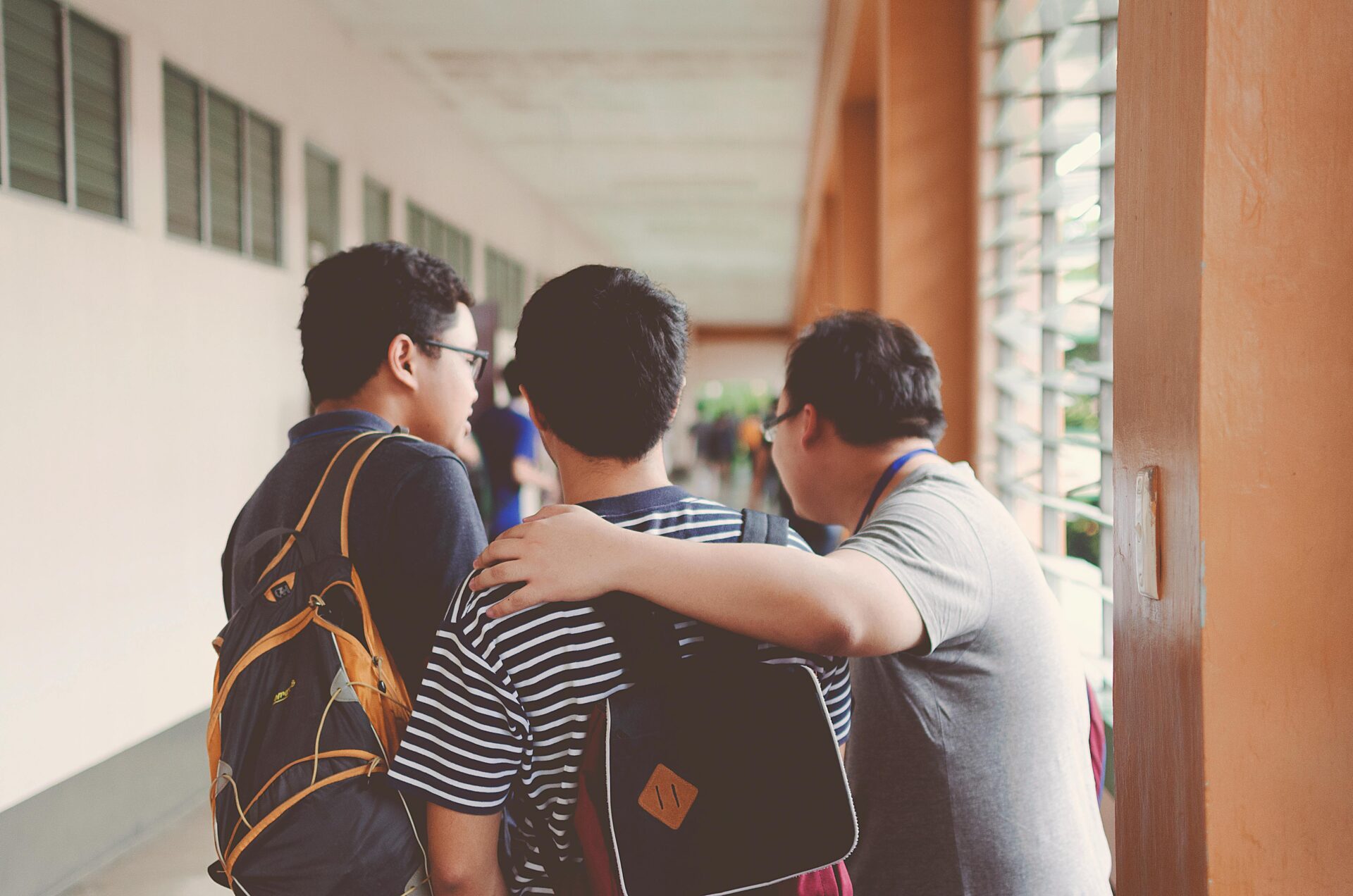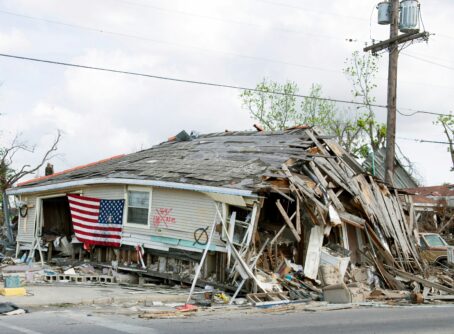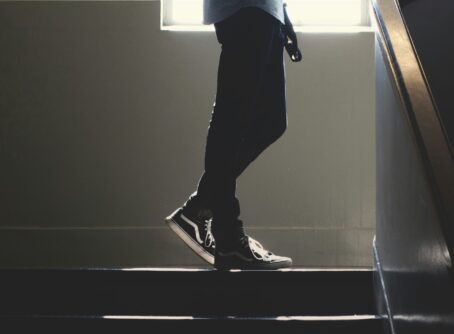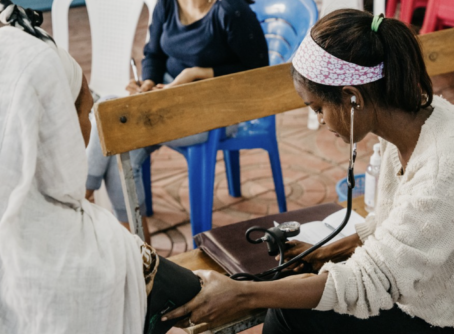
This article is part of CPJ’s Shared Justice series on involving families and communities in the juvenile justice system. In the United States, courts will hear nearly 800,000 juvenile justice cases per year. In the current complex system, probation officers and parents often work against each other rather than with each other; this series outlines the tangible ways families can be involved in the restorative process for their children who are in the justice system.
“Walk with the wise and become wise, for a companion of fools suffers harm.” (Proverbs 13:20, NIV)
As defined by the Annie E. Casey Foundation, mentoring “involves a supportive, caring relationship between an adult and a young person, either established formally through a program or occurring naturally such as with a neighbor or coach.” It is no secret that we are shaped by the people we spend time with, and for those who are young, this is especially true. Although the family plays a significant role in a child’s formation, young people are often deeply influenced by mentors, in particular those outside of their family unit. When we think about youth who are in the juvenile justice system, a mentor’s role is even more significant.
For justice-involved youth, the importance of community involvement and mentorship cannot be overstated. According to the Office of Juvenile Justice and Delinquency Prevention, “mentoring has been shown to improve self-esteem, academic achievement, and peer relationships and reduce substance misuse, aggression, depressive symptoms, and delinquent acts.” They consider mentoring to be a, “consistent, prosocial relationship between an adult or older peer and one or more youth.” This consistency necessary for true mentoring is part of why the community surrounding young people is so important.
This consistency necessary for true mentoring is part of why the community surrounding young people is so important.
Unfortunately, the young people who would most benefit from having a mentor are often the least likely to find one. According to the Annie E. Casey Foundation, “86% of children ages 6 to 17 have at least one adult mentor.” However, for children below the poverty line that number drops to 77%. Among children whose parents did not finish high school, only 68% had a mentor relationship.
In 2023, the MENTOR, an organization that seeks to provide young people with mentors, performed a study called Who Mentored You? examining what they call “the mentoring gap.” They found that “youth who experienced the most hardship growing up [were] most likely to give their mentors credit for their success in life.” Furthermore, mentorship relationships are also correlated with improved mental health and a sense of belonging. However, the study also found that “today’s 18-to-21-year-olds are 4 percentage points less likely to have been mentored than their 22-to-24-year-old peers.” Like the Annie E. Casey Foundation, they also found that youth whose families come from “lower income brackets are the least likely to have mentors.” This is what MENTOR means when they talk about “the mentoring gap.” Though mentors are available, there is a sharp divide between young people with mentors and those without.
Given the positive impact mentors can have on young people, we must continue to foster these relationships in our communities — especially for youth involved in the juvenile justice system. This can happen in several ways: whether through a formal mentorship program or as an extension of their role, teachers, coaches, pastors and other authority figures can step into the lives of the young people around them. Even without a formal role in a young person’s life, neighbors and other members of the community can also act as mentors to the youth around them.
Teacher-student relationships are another opportunity for young people who would benefit from having mentors at school. According to the U.S. Department of Justice Office of Justice Programs, “The educator’s role in each of these situations is primarily reactive, providing educational histories and assessments and participating in monitoring the child’s probation or aftercare activities.” Although educators often coordinate with probation officers and other legal authorities to give testimony and implement educational aspects of case planning, they can also play a proactive role in helping young people to see a brighter future for themselves. Rather than just tracking a struggling young person’s progress, teachers and other educators can help their students by becoming involved in their lives. By connecting a student’s academics to a positive interpersonal relationship, teachers can provide a strong incentive for youth who are struggling to continue in their studies.
Similarly, coaches, directors and other extracurricular activity leaders have the potential to provide mentor relationships to youth involved in the juvenile justice system. A study performed in the Dutch sports-based intervention program AJB showed that the youth in the program experienced, “significant improvements on seven out of eight risk and protective factors for delinquency during the intervention.” The study also found that a variety of factors impacted how beneficial the program was, including the behavior of the coach. The study authors suggest that “Coaches for at-risk youths should be sensitive and responsive toward developmental needs, signal and discuss problems in the development of youth, and be reflective of their behaviors as a role model.” While the simple act of participating in sports may be somewhat beneficial, the greatest impact comes when sports programs provide opportunities for coaches to positively impact the youth on their teams.
By connecting academics to a positive interpersonal relationship, teachers can provide a strong incentive for youth who are struggling to continue in their studies.
This illustrates the important role that formal mentorship programs can have in the lives of young people. There are several different mentorship models. MODEL makes a distinction between “naturally occurring” or informal mentorship relationships and “programmatic” or formal mentorship relationships. Although naturally occurring mentorships were often cited as more meaningful, students who had experienced both types of mentoring relationships cited both naturally occurring and programmatic relationships equally. Part of CPJ’s Guideline on Citizenship states that Christians are called to “shape the political community to conform to the demands of justice.” In many cases, this means working with government authorities, such as schools and formal mentorship programs, to support the community as a whole.
Pastors, chaplains and other religious authorities can also act as mentors to struggling young people. The Georgia Department of Juvenile Justice (DJJ) Office of Chaplaincy Services serves youth in the local juvenile justice system. They emphasize the role of a chaplain as a counselor in “the recovery and rehabilitation process and the spiritual formation of DJJ youth.”
In her article “I Was In Prison and You Visited Me: Providing Pastoral Care to Detained Young Latinos,” Silvana Krogsrud describes how she uses a creative writing class to help relate to the young people in the juvenile detention center where she serves as chaplain.
Krogsrud writes, “The crucial part of providing pastoral care is to listen and to hear… I provide a safe space by listening to them with compassion, non-judgment, and empathy.” One of the students in her creative writing class wrote that “people don’t look below the surface. They don’t understand where we are coming from. Since I was very young, I have seen destruction; people dying from gunshot wounds and from getting stabbed.” It is very easy to preach to other people; it is harder to listen. However, even though listening well is difficult, it is something all of us can do.
Krogsrud concludes with this sobering thought: “The youth I care for have little to no support once they leave the detention facility. Even though most youth do very well in detention and take advantage of the educational programs that are offered, it is unrealistic to think that they can make it on their own without a support system.” By support system, Krogsrud means the community of teachers, coaches, pastors and neighbors who have the opportunity to make a difference in the life of a young person in the juvenile justice system.
Neighbors, family friends, aunts and uncles, and other relatives can all have just as much of an impact on the lives of the young people around them.
It is not only adults with formal authority positions who can speak into the lives of the struggling youth in their communities. Neighbors, family friends, aunts and uncles, and other relatives can all have just as much of an impact on the lives of the young people around them. One study found that “naturally occurring mentorships were about three times more likely” to be considered meaningful, as compared to “programmatic” mentor relationships. Just because you do not have a formal position related to young people does not mean you are not able to have a major impact on their lives.
For many of us, seeking change to the juvenile justice system feels daunting and overwhelming. We care about the lives of young people and want to see them grow and flourish into faithful, justice-seeking political citizens, but we are not sure how to start. While resolving all the issues in might take time, we can start creating change today in our backyards, schools and communities. If we prioritize mentorship, seek to involve ourselves in the lives of struggling children rather than distance ourselves and understand the importance of adult relationships in a young person’s life, we will begin to see concrete changes in our system.
Philip Kendall is a junior at Wheaton College pursuing majors in International Relations and Rhetoric. He grew up in the West African country of Guinea.





